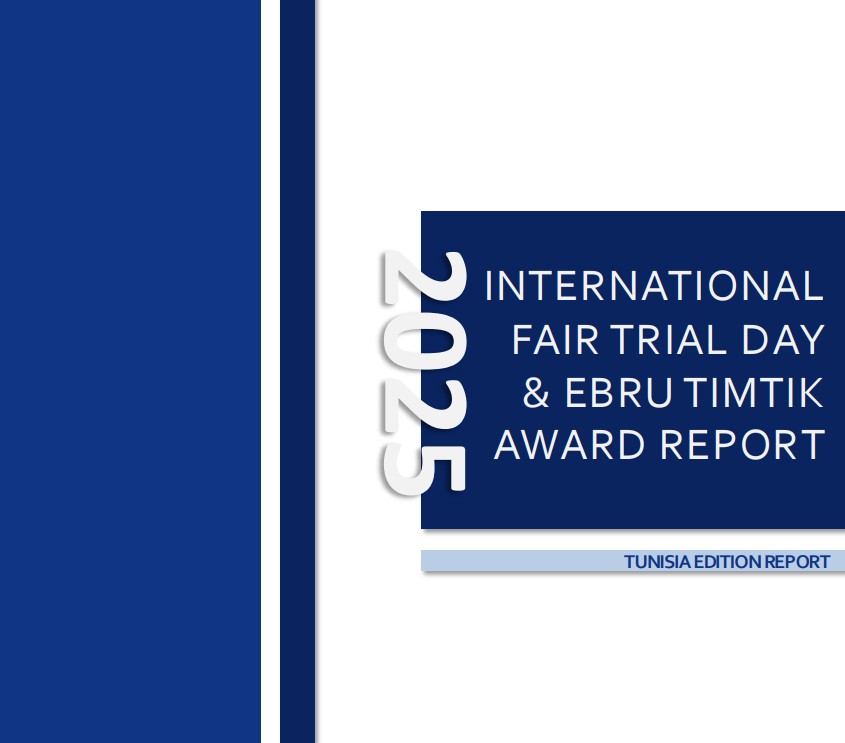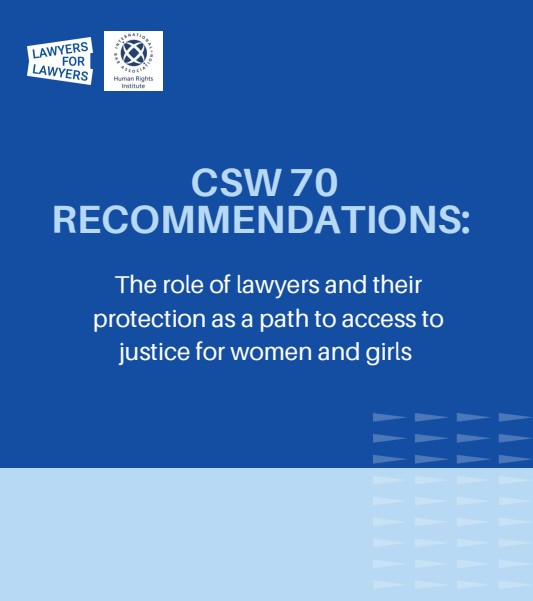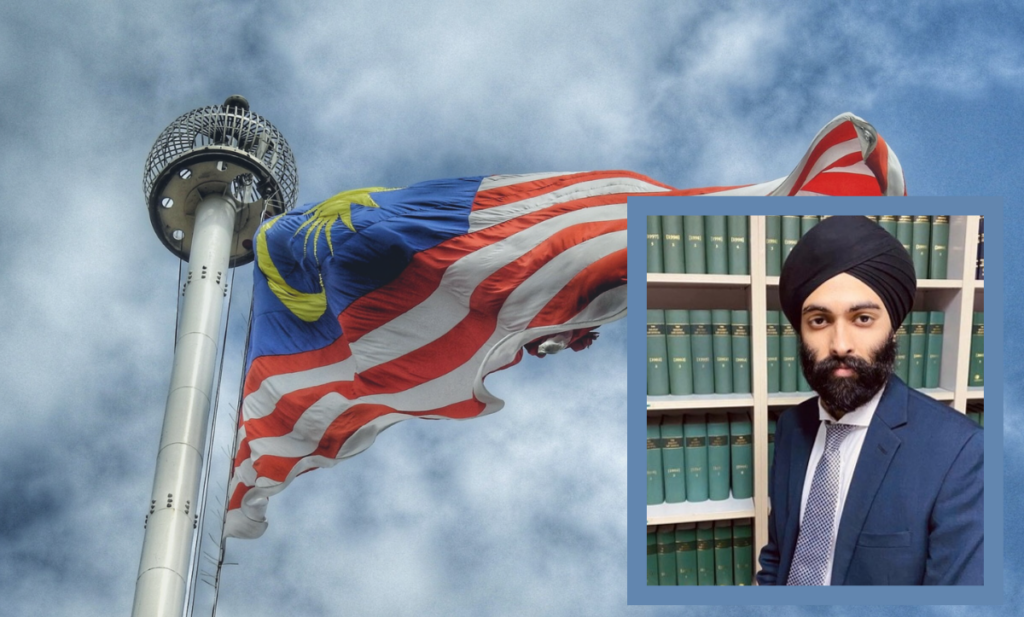Paving the Path to Equality: Milena Adamczewska-Stachura’s Fight for the Right of the LGBTQIA+ Community and the Crucial Role Played by Strategic Litigation
Illustration by Elisabeth van der Spek
Milena Adamczewska-Stachura is a human rights lawyer currently working at the Polish Ministry of Equality, advocating for systemic protection of vulnerable communities. After graduating from her studies in International Law and Human Rights, she took on a position at the Commissioner for Human Rights Office (also known as the Polish ‘Ombudsman’). Upon starting her career in 2019, hate speech and crimes against LGBTQIA+ individuals being on the rise in Poland, and the Polish Ombudsman being the only office in the country taking up cases fighting for, and not against, this community, Ms. Adamczewska felt a push to getting involved in their defence and representation by joining the Office of the Ombudsman. Following this experience, Ms. Adamczewska joined the only law firm in Poland specialising exclusively in LGBTQIA+ rights, having previously also worked for a member of the European Parliament for a year. Her work deepened her commitment to strategic litigation as a powerful tool for change. She shared how her time at the law firm, advocating for LGBTQIA+ rights, gave her a great feeling of fulfilment. Her transition from legal practice to public service reflects her belief in the importance of strategic litigation, having witnessed the consequences both before and after such efforts. “I joined this field because I believe this is one of the communities in Poland which has the least protection in law.” A situation, she is now actively trying to work towards bettering through the Polish Ministry of Equality.
LGBTQIA+ Rights in Poland: Challenges and Progress
The state of LGBTQIA+ rights in Poland is marked by a complex mix of legal hurdles and social challenges, but with recent efforts signaling cautious progress. Same-sex unions currently lack legal recognition, as the Polish constitution defines marriage strictly as a union between a “man and a woman”. This definition has long been a barrier to marriage equality. However, since the Tusk government took office in December 2023, hopeful legal developments have taken place. Indeed, in October 2024, the government introduced a draft law to legalise civil partnerships for same-sex couples. While the proposed legislation grants certain rights, such as inheritance and access to medical information, it notably excludes adoption.
Social acceptance of LGBTQIA+ individuals however remain a significant challenge. A 2024 EU-wide survey revealed alarming statistics: 44% of the interviewees felt discriminated against in the year previous to the survey, the European Union average being 37%.1 Indeed, Poland’s legal framework offers only limited protection against discrimination. The 2010 Equal Treatment Act prohibits discrimination based on sexual orientation in employment but does not explicitly cover gender identity, leaving transgender individuals particularly vulnerable. Encouragingly, in November 2024, the government through the ministry of equality, proposed extending hate speech laws to include protections based on sexual orientation, gender identity, age, and disability. Unfortunately, after going being passed by parliament, President Andrzej Duda did not sign the bill into law but referred it for consideration by the Constitutional Tribunal, expressing concerns as to the bill’s violation of the constitutional right to free speech. This has been met with great disappointment from Polish civil society and international community as the Constitutional Tribunal is reported to not be independent, on the contrary, operating under the influence of the conservative former ruling Law and Justice (PiS) party, which opposes itself greatly to the proposed measures. Polish civil society have expressed concerns over the bill potentially sitting indefinitely before the Tribunal, or being rejected all together, demonstrating a potentially great set back for the protection of the rights of the LGBTQIA+ community in Poland.2
Thus, despite, and in light of, these developments, concerns remain about the broader political and judicial landscape. Judicial reforms introduced since 2015 have been criticised for undermining judicial independence, raising fears of government interference in cases related to LGBTQIA+ rights.
While recent developments reflect steps toward equality, Poland’s LGBTQIA+ community continues to navigate legal uncertainty and societal stigma. Sustained efforts are essential to ensure full recognition and protection of LGBTQIA+ rights in the country.
Strategic litigation: paving the way for legislative change
Milena Adamczewska shared how, in Poland, strategic litigation has served as the principal mechanism for securing legal recognition and protections for LGBTQIA+ rights for years, particularly in the context of limited political will for legislative changes under the previous government. Due to the persistent absence of comprehensive legislative reforms, litigation before domestic courts, the European Court of Human Rights (ECtHR), and the Court of Justice of the European Union (CJEU) has played a pivotal role in addressing legal deficiencies and aligning Polish law with European human rights standards. However, Milena Adamczewska shared that since the recent change in government, the situation is changing as there has been increased public focus on the legal status of the LGBTQIA+ community. However, the adoption of legislative changes still depends on ongoing political negotiations and parliamentary dynamics, strengthening the need for concurrent litigation and advocacy.
Milena Adamczewska further shared how, for years, the Polish legal framework has lacked provisions recognising same-sex relationships. This gap has been challenged in European courts, with notable successes. Recent rulings from the ECtHR and CJEU have reinforced Poland’s obligations under European law to protect the rights of same-sex couples. Despite this, Milena Adamczewska shared how resistance from certain state institutions and ongoing legal uncertainties surrounding enforcement mechanisms lead to significant barriers to the effective implementation of these rulings. This reflects a broader tension between national legislative preferences and the binding nature of human rights obligations, raising questions about how such decisions could impact domestic reforms and practices. This case highlighted the limitations of judicial enforcement in Poland, where domestic authorities have historically resisted compliance with European court decisions. It also underscored the broader challenge of ensuring that court rulings translate into effective, on-the-ground legal protections, thus, the need for the passing of new bills anchoring these rights and decisions in legislation. Judicial rulings and legislative reforms go hand in hand with each other to guarantee that legal recognition is enforceable with long-lasting consequences.
Indeed, the recently proposed Civil Partnerships Bill (CPB), on which Milena Adamczewska worked and is working, is a direct result of years of litigation which exposed legal gaps and the systemic violations faced by same-sex couples. It aims to address the legal gaps that have left same-sex partners without protections in areas such as inheritance, healthcare decision-making, and parental rights. However, while the bill represents progress, it cannot oversee all aspects of protection of LGBTQIA+ rights, for instance, not covering sectors such as the recognition of same-sex marriages performed abroad, which risk being downgraded to civil partnerships. As Millena Adamczewska emphasized the bill “will not cover all problems,” particularly the recognition of marriages contracted abroad and second-parent adoption.
Ms. Adamczewska pointed to a significant pending case3 before the CJEU concerning whether Poland is required to legally recognise a same-sex marriage contracted abroad by a Polish citizen, particularly for purposes such as residency rights, under EU law. With a judgment expected in June 2025, the case could provide a crucial precedent for how EU member states enforce the recognition of same-sex marriages performed in other countries. She also emphasised how the decision of this judgment could directly influence the future scope of the CPB, highlighting the central role of litigation in driving legal reform. In this context, strategic litigation has proven to be an effective tool for bringing about meaningful legal change. However, she also cautioned that “such victories are only part of the fight.” Even when courts decide clear legal obligations, putting them into practice domestically often falls short. The disciplinary measures imposed on judges and the broader constitutional tribunal crisis have raised questions regarding the judiciary’s ability to apply international and European legal standards impartially. This legal pressure has not only led to court victories but has also created momentum for legislative proposals that would have been unthinkable just a few years ago. Yet, in cases concerning LGBTQIA+ rights, the risk of inconsistent rulings or delays in enforcement remains high. For this reason, as Ms. Adamczewska stressed, there is an urgent need for comprehensive laws that ensure enforceable protection against discrimination based on sexual orientation.
Thus, litigation was both essential to bringing about the CPB and legislative change, and remains essential in addressing issues not covered by the Bill. The success of this approach is not new. Under the leadership of the Ombudsman’s office, legal actions against so-called “LGBT-free zones” played a transformative role in dismantling discriminatory resolutions at the local level, proving that courts can be powerful agents of change. The combination of individual casework, media advocacy, and targeted litigation has not only challenged systemic discrimination but has also pressured policymakers to acknowledge and address legal inequalities. As Milena Adamczewska emphasised, this interplay between legal action and legislative initiatives continues to shape the fight for LGBTQIA+ rights, demonstrating that while litigation alone cannot replace political will, it remains an essential force in breaking legislative deadlock and pushing forward long-overdue reforms.
Positive developments but still a long way to go
Despite the progress achieved through strategic litigation and growing legal recognition, significant challenges remain for LGBTQIA+ rights in Poland. Milena Adamczewska highlights three crucial legislative changes which remain necessary to ensure meaningful and lasting protections. First, the expansion of hate crime and hate speech laws to include sexual orientation and gender identity—a long-overdue amendment that has now been approved and is progressing through Parliament—represents a critical step in combating discrimination and violence.
Second, the adoption of a Civil Partnerships Bill, ideally in the form already proposed, would provide long-awaited legal recognition and protections for same-sex couples, although further litigation will likely be needed to address remaining gaps, such as parental rights and full marriage recognition.
Finally, legal gender recognition, though technically possible in Poland, remains an uneven and arbitrary process, heavily dependent on the discretion of individual courts. While some cases are resolved within a few months, others drag on for years due to inconsistent procedures and excessive evidentiary requirements, such as multiple expert testimonies. Establishing a standardised, transparent process for legal gender recognition would remove these inequalities and grant trans individuals the dignity and legal certainty they deserve.
These reforms are within reach, but continued advocacy, litigation, and political pressure will be essential to ensure they become reality. The progress made so far is undeniable—strategic litigation has not only overturned discriminatory policies but has also set the stage for legislative change. However, achieving full equality will require sustained efforts to ensure that legal victories translate into comprehensive and enforceable rights for all LGBTQIA+ individuals in Poland.
By sharing Milena Adamczewska-Stachura’s story, Lawyers for Lawyers seeks to shed light on the struggles faced by human rights lawyers, specifically LGBTQIA+ defenders, but also positive developments in the protection of these rights which can be brought by the work of lawyers, as is the case is Poland. The Access to Justice Campaign, launched on May 16, 2024, aims to raise awareness about the systemic barriers preventing fair trials and legal representation for LGBTQIA+ individuals advocates, and promoting the protection and recognition of lawyers’ crucial role in advancing LGBTQIA+ rights, while also advocating for those rights themselves. Milena Adamczewska’s journey is a testament to the importance of litigation and legal defence and work for the representation and defence of the LGBTQIA+ community.



